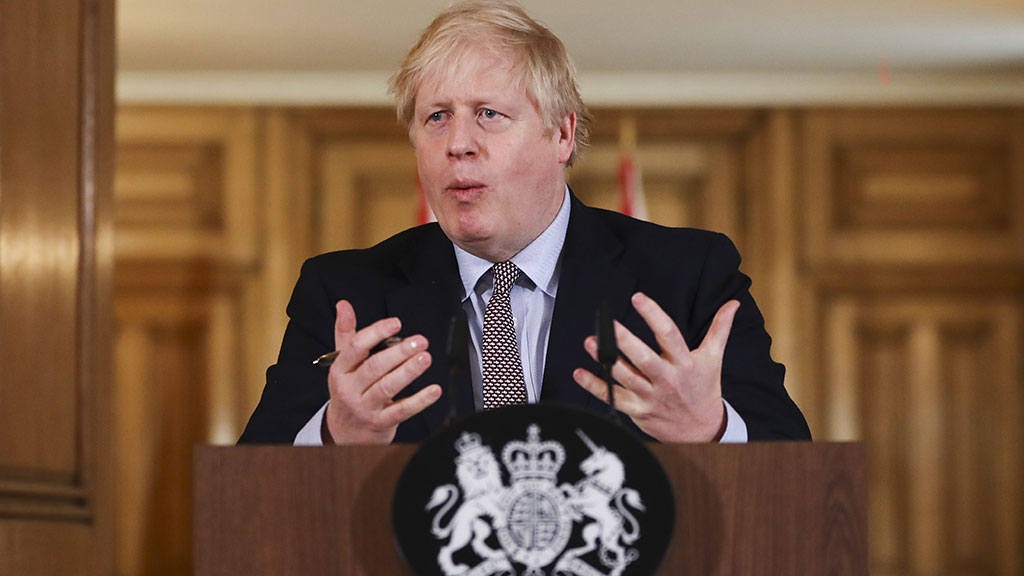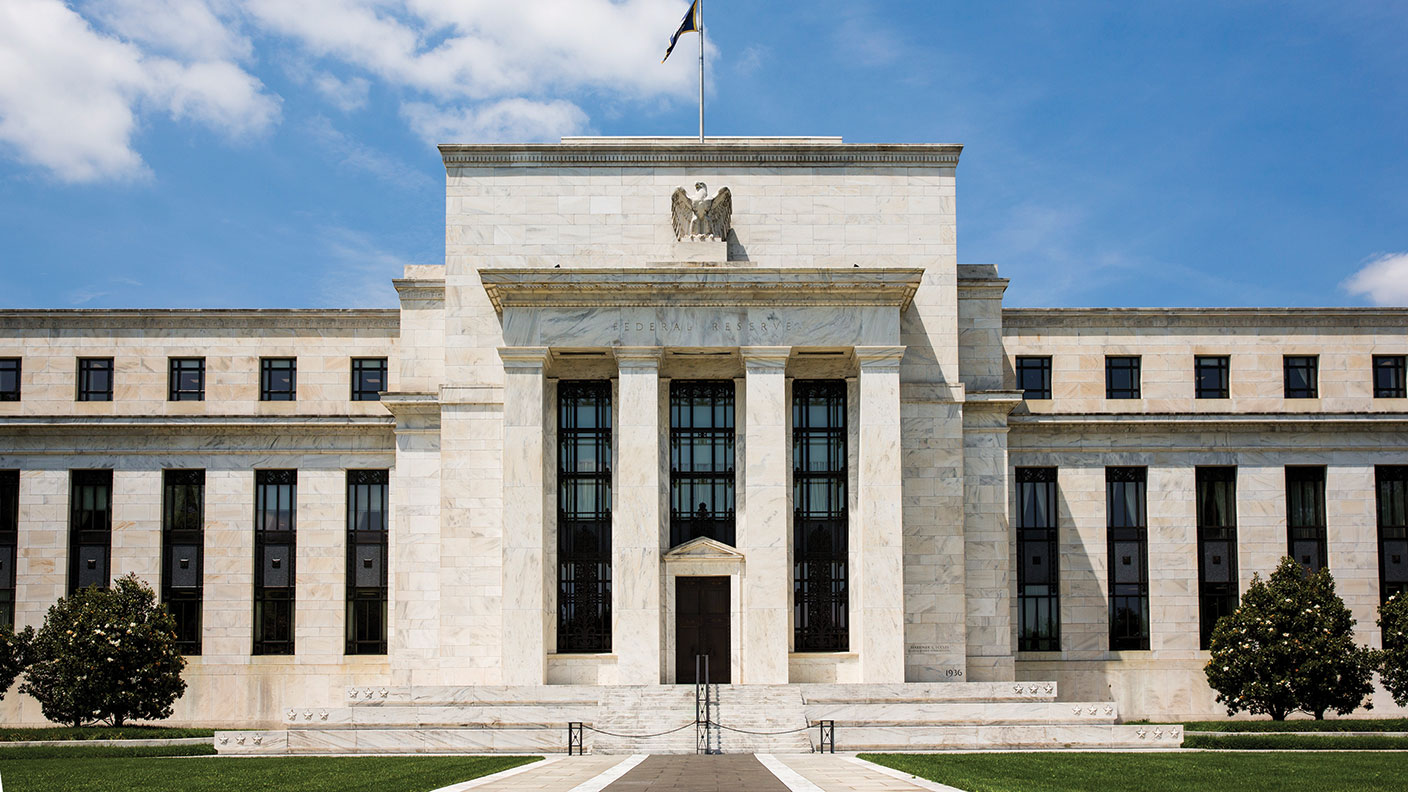Coronavirus is the ideal excuse for governments to blow the budget
The world's current governments didn't really need an excuse to go on a spending spree. But in the coronavirus epidemic, they've now got one. Expect to be showered with cash, says John Stepek.


Get the latest financial news, insights and expert analysis from our award-winning MoneyWeek team, to help you understand what really matters when it comes to your finances.
You are now subscribed
Your newsletter sign-up was successful
Want to add more newsletters?

Twice daily
MoneyWeek
Get the latest financial news, insights and expert analysis from our award-winning MoneyWeek team, to help you understand what really matters when it comes to your finances.

Four times a week
Look After My Bills
Sign up to our free money-saving newsletter, filled with the latest news and expert advice to help you find the best tips and deals for managing your bills. Start saving today!
What’s the latest on the coronavirus? The US market had a nice bounce yesterday, but that, it seems, was as much to do with investors being relieved that Joe Biden rather than Bernie Sanders will be going up against Donald Trump in November 2020.
As I keep saying, all politics is local and outsiders are not very good at grasping the nuances. So I won’t comment any further on US politics. (But it wouldn’t surprise me if everyone gets the collywobbles again next time Sanders sees a poll flip in his favour.)
Anyway – central banks are starting to join the party that the Federal Reserve kicked off. Canada cut interest rates yesterday too. But can they really do very much? And if not, who can?
MoneyWeek
Subscribe to MoneyWeek today and get your first six magazine issues absolutely FREE

Sign up to Money Morning
Don't miss the latest investment and personal finances news, market analysis, plus money-saving tips with our free twice-daily newsletter
Don't miss the latest investment and personal finances news, market analysis, plus money-saving tips with our free twice-daily newsletter
Central banks can’t do much with standard rate cuts alone
It’s clear that central bankers are now back in “cutting” mode. Interest rates aren’t going higher any time soon. The European Central Bank is expected to cut soon. So is the Bank of England (maybe around the time of next week’s budget).
Investors have grown used to instinctively buying when central banks step in. It’s the “central bank put” – the idea that they act like a giant insurance policy, keeping markets from falling too fast or far.
The problem is, rates are now so low in most countries that simply cutting rates can’t deliver much traction, certainly not to the “real” economy. The US is best placed, because mortgage rates there still have room to fall. And even in the UK, it’d be quite possible for mortgages to get a bit cheaper – at that scale, every little helps.
But beyond that, making borrowing cheaper is not going to inspire companies to get out there and invest in the face of a massive demand shock, particularly when they haven’t exactly been itching to do so in any case. (Oh and it also doesn’t help with one of the central political problems of our era – unaffordable house prices. It’ll probably just exacerbate that problem.)
So if companies aren’t going to invest and consumers aren’t likely to go on a mad spending spree, what happens then? Well, that’s where governments come in (accompanied by “experimental” monetary policy).
Why big spending wasn’t seen as an option post-2008
After the financial crisis, we had lots of debates and arguments about whether or not it made sense for governments to embark on pseudo-Keynesian spending sprees. I can tell you that I was not in favour of it, but I wasn’t in favour of much that was done at that point, including quantitative easing (QE), bailing out the banks and all the rest of it.
The point is, back then, whatever the rights and wrongs of the case, the political consensus was that we’d had a private debt crisis that was in serious danger of morphing into a public debt crisis (because countries had put their balance sheets on the line to bail out their banking sectors). As a result, it was very risky for governments to stand up and say: “Oh we’re going to spend a load of money on digging a big pit and then filling it back in again.”
And we’ll never know the counterfactual. Having had a decade of ever-growing debt and higher-than-usual annual deficits, about which the bond market apparently cares not a jot, it’s easy to argue that deficits don’t matter. In the wake of 2008 and at a time when several eurozone countries genuinely were at risk of defaulting, it didn’t seem as obvious.
Today, it’s different, precisely because of the past decade. We’ve seen that it apparently doesn’t matter how much money a central bank prints. We’ve seen that it doesn’t matter what the central bank buys. (I mean, how much of the Japanese stockmarket is now owned by the Bank of Japan? I lose track.) We’ve seen that inflation is apparently as dead as a doornail.
So who cares? Fiscal prudence is for wimps. That’s shaped our politics too. Donald Trump and Boris Johnson have a lot less in common than Johnson’s detractors like to pretend. But one thing is certainly true – they are both in favour of spending money and making grand gestures and not worrying at all about debt levels.
The politics have changed – expect fireworks
So what can you expect? I think the Budget is one to watch out for this year. I was already expecting a “feel good” Budget and now that we’ve got coronavirus to contend with too, there really has to be something to cheer in there, or it’s all going to be a bit of a damp squib.
Chris Giles in the FT reports that Andrew Bailey, the incoming boss of the Bank of England, told politicians yesterday that it is very likely that the central bank will need to “provide some supply chain financing” to help out small and medium-sized businesses that are hit in the short term by the coronavirus outbreak.
He also said, interestingly, on the topic of central bank independence: “we must act in a co-ordinated manner [with the government] and can’t let our independence get in the way of that.”
I’ve always viewed independence as a somewhat pointless fig leaf but that’s the first time I’ve seen it brushed aside (so to speak) quite so openly. QE for the people? It’s not here yet, but it
Get the latest financial news, insights and expert analysis from our award-winning MoneyWeek team, to help you understand what really matters when it comes to your finances.

-
 Can mining stocks deliver golden gains?
Can mining stocks deliver golden gains?With gold and silver prices having outperformed the stock markets last year, mining stocks can be an effective, if volatile, means of gaining exposure
-
 8 ways the ‘sandwich generation’ can protect wealth
8 ways the ‘sandwich generation’ can protect wealthPeople squeezed between caring for ageing parents and adult children or younger grandchildren – known as the ‘sandwich generation’ – are at risk of neglecting their own financial planning. Here’s how to protect yourself and your loved ones’ wealth.
-
 How a dovish Federal Reserve could affect you
How a dovish Federal Reserve could affect youTrump’s pick for the US Federal Reserve is not so much of a yes-man as his rival, but interest rates will still come down quickly, says Cris Sholto Heaton
-
 New Federal Reserve chair Kevin Warsh has his work cut out
New Federal Reserve chair Kevin Warsh has his work cut outOpinion Kevin Warsh must make it clear that he, not Trump, is in charge at the Fed. If he doesn't, the US dollar and Treasury bills sell-off will start all over again
-
 'Investors should brace for Trump’s great inflation'
'Investors should brace for Trump’s great inflation'Opinion Donald Trump's actions against Federal Reserve chair Jerome Powell will likely stoke rising prices. Investors should prepare for the worst, says Matthew Lynn
-
 'Governments are launching an assault on the independence of central banks'
'Governments are launching an assault on the independence of central banks'Opinion Say goodbye to the era of central bank orthodoxy and hello to the new era of central bank dependency, says Jeremy McKeown
-
 Do we need central banks, or is it time to privatise money?
Do we need central banks, or is it time to privatise money?Analysis Free banking is one alternative to central banks, but would switching to a radical new system be worth the risk?
-
 Will turmoil in the Middle East trigger inflation?
Will turmoil in the Middle East trigger inflation?The risk of an escalating Middle East crisis continues to rise. Markets appear to be dismissing the prospect. Here's how investors can protect themselves.
-
 Federal Reserve cuts US interest rates for the first time in more than four years
Federal Reserve cuts US interest rates for the first time in more than four yearsPolicymakers at the US central bank also suggested rates would be cut further before the year is out
-
 The Bank of England can’t afford to hike interest rates again
The Bank of England can’t afford to hike interest rates againWith inflation falling, the cost of borrowing rising and the economy heading into an election year, the Bank of England can’t afford to increase interest rates again.